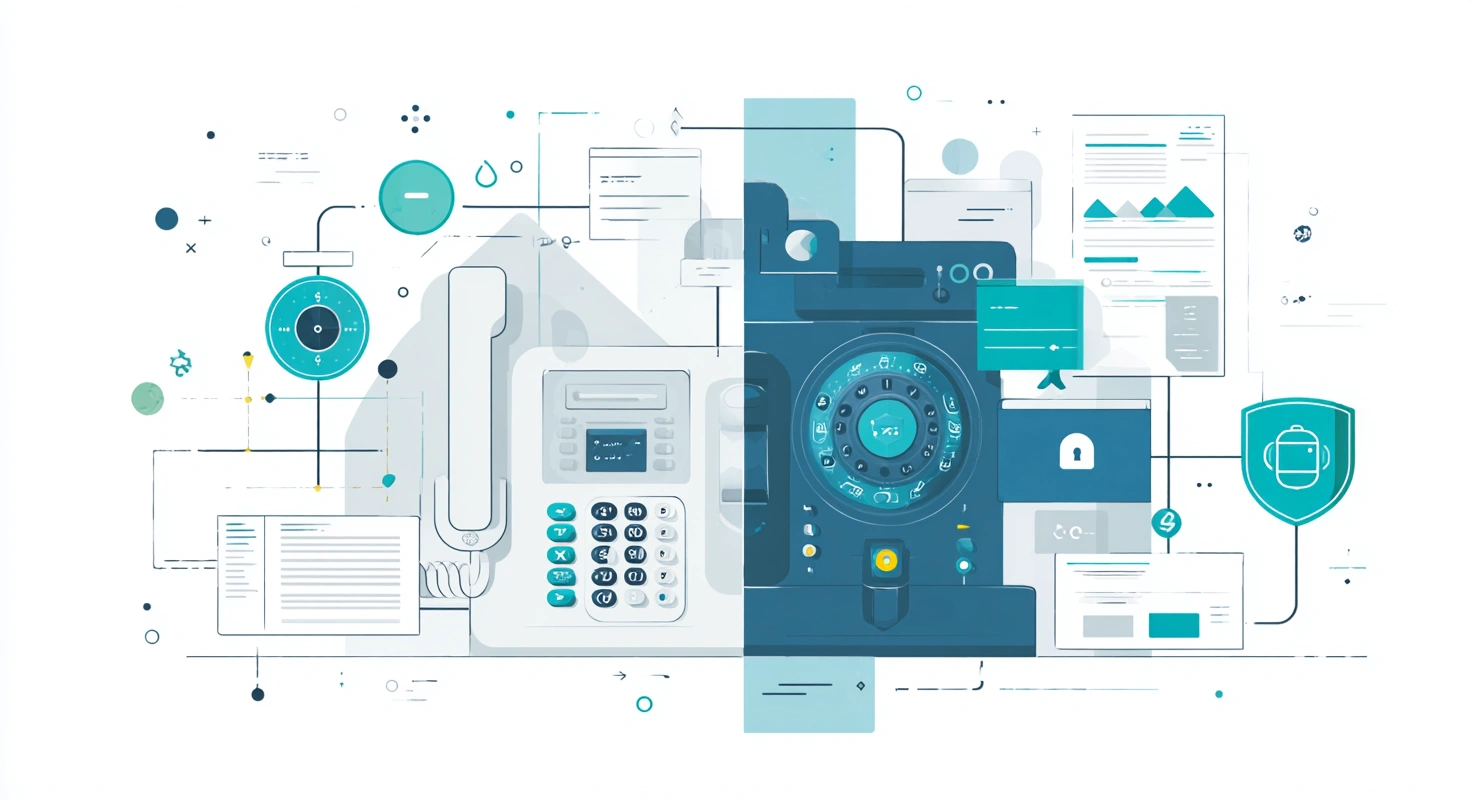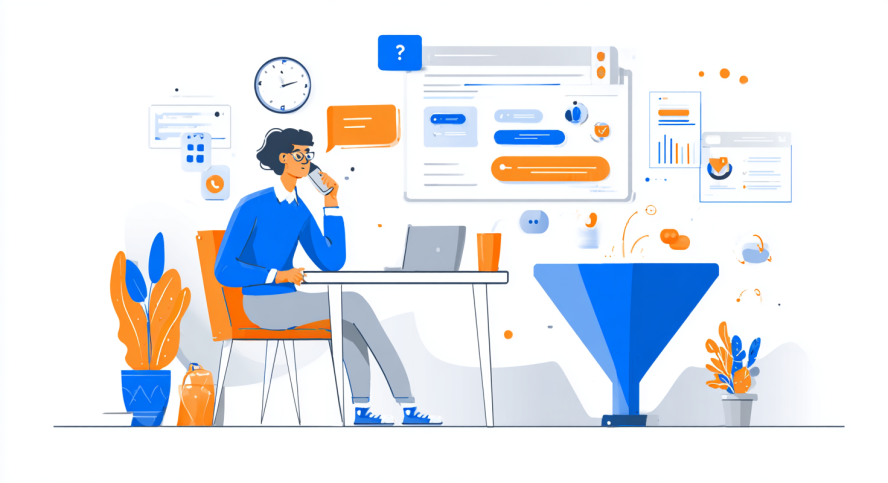Customer service is the cornerstone of any business aiming to build long-term relationships with its clients. Well-trained agents are essential for maintaining service quality, ensuring customer satisfaction, and driving customer loyalty. Training methods, such as real-time agent assistance and post-call coaching, offer a robust solution for equipping customer service teams to handle customer interactions effectively, especially in high-pressure environments like call centers.
Customer service training involves equipping agents with the necessary skills and tools to handle customer inquiries and resolve issues efficiently. Real-time agent assistance tools provide immediate guidance during live interactions, helping agents avoid mistakes, while post-call coaching offers insights after the call to improve future performance. Incorporating these customer service training ideas enhances customer service skills training by enabling on-the-job learning and refining agent performance.
A recent study by McKinsey & Company highlighted how real-time assistance and coaching improved first-call resolution rates by 20%, with one U.S.-based retail company reducing its average handle time (AHT) by 12% using AI-driven training tools.
Incorporating real-time assistance and post-call coaching into your customer service training program creates a continuous learning cycle for your agents. This ensures that they’re prepared to handle customer queries on the spot and improve their skills over time. In the long run, businesses that invest in these modern customer service training ideas will boost agent performance and customer satisfaction, making it a win-win solution for companies and customers alike.
Reduce call handling time and boost CSAT—Discover Convin’s real-time coaching!
Why Invest in Customer Service Training

Investing in customer service training is not just about fulfilling business requirements; it’s an investment in your brand’s long-term success. Trained agents contribute to a more efficient and productive work environment by resolving customer problems promptly and with precision. Without sufficient training, agents may lack the knowledge and skills needed to address complex customer queries, leading to frustration and a negative impact on customer loyalty.
Data shows that customer expectations are at an all-time high. According to the 2023 Zendesk CX Trends Report, 63% of business leaders have observed a rise in customer expectations, driving the need for better customer service solutions.
Well-trained agents who understand both product knowledge and customer service processes can significantly reduce call handling times, enhance customer satisfaction, and improve customer retention. To meet these heightened expectations, businesses are increasingly investing in technologies that offer immersive and seamless customer experiences.
Furthermore, research shows that 61% of customers will switch to a competitor after just one poor service experience, according to a study by Zendesk. Additionally, PwC's Future of Customer Experience Report revealed that 1 in 3 customers would abandon a brand they love after a single bad interaction. This emphasizes the importance of providing high-quality service at every touchpoint to retain customers and avoid losing them to competitors.
This highlights the direct correlation between customer service quality and retention rates. In this environment, providing agents with effective customer service training ideas is essential for long-term business stability and growth.
1. Real-Time Agent Assistance for Effective Training

Real-time agent assistance is one of the most effective ways to train customer service agents. This approach ensures that agents receive support exactly when they need it—during live interactions with customers. Real-time assistance tools like Convin’s Agent Assist leverage AI and machine learning to provide agents with prompts, suggestions, and warnings while they’re on the call, helping them navigate difficult conversations smoothly.
Research shows that real-time assistance improves agent performance by reducing errors and increasing the quality of customer interactions. These tools can automatically suggest appropriate responses or alert agents to key pieces of information they may need to resolve an issue. For instance, if an agent is dealing with a frustrated customer, real-time assistance can provide empathy-based response suggestions to help de-escalate the situation.
Additionally, agents learn as they work, using real-world scenarios to develop their skills without the pressure of getting everything right on their own. Over time, this builds confidence and ensures agents are prepared to handle a variety of customer queries, from simple issues to more complex problems.
2. Post-Call Coaching for Continuous Improvement
While real-time assistance helps during customer interactions, post-call coaching is key to continuous learning and improvement. This method uses recorded conversations and post-call insights to review agent performance, identify strengths and weaknesses, and provide targeted feedback. With tools like Convin’s Automated Coaching, managers can analyze calls against custom scorecards to determine where agents excel and where they need further development.
According to data from McKinsey’s 2022 State of Customer Care Survey, companies implementing regular post-call coaching have observed a 15% increase in customer satisfaction scores.
This is largely due to the personalized feedback that post-call coaching offers, allowing agents to improve their skills and customer interactions continuously. The report highlights that a focus on real-time assistance and post-call coaching boosts performance and plays a significant role in increasing customer loyalty.
Furthermore, automated coaching tools eliminate the need for manual monitoring, saving managers time while ensuring that every agent receives consistent, high-quality feedback. These tools can also use AI to highlight successful strategies from top-performing agents, allowing new or struggling agents to learn from the best practices within their team.
Benefits of Combining Real-Time Assistance & Automated Coaching

- Immediate error reduction: Agents receive real-time prompts, which help them avoid common mistakes during live customer interactions. This improves the effectiveness of customer service training for employees, ensuring they handle issues efficiently from day one.
- Improved first-call resolution rates: Real-time guidance ensures agents can address and resolve customer issues on the first call, reducing follow-ups. These customer service training ideas boost overall customer satisfaction by minimizing friction.
- Continuous learning and development: With post-call coaching, agents reflect on their performance and receive targeted feedback, fostering customer service skills training and continuous improvement.
- Faster agent ramp-up time: Using both real-time assistance and automated coaching, new hires in call center customer service training programs can quickly perform at the same level as experienced agents.
- Consistent service quality: Tools like Convin’s Agent Assist ensure all agents adhere to a consistent standard of service, reinforcing customer service training ideas for call centers.
- Increased customer satisfaction: Combining immediate, live guidance and detailed post-call feedback leads to better customer service activities, driving higher satisfaction scores and loyalty.
- Reduced supervisor intervention: Real-time assistance minimizes the need for constant supervisor oversight, making free customer service training ideas like on-the-job learning highly scalable and efficient.
- Cost efficiency: Automating the feedback process with post-call insights saves time and resources while ensuring high-quality feedback across teams, an essential aspect of any customer service training manual.
- Scalability: Both real-time assistance and post-call coaching can easily scale with a business's growth, providing flexible customer service training ideas programs that adapt to increased call volumes and team sizes.
This blog is just the start.
Unlock the power of Convin’s AI with a live demo.

Free Customer Service Training Ideas for Call Centers
Even for businesses on a tight budget, there are free customer service training ideas that can help improve agent performance. One of the most cost-effective methods is to utilize AI-driven tools for both real-time assistance and post-call coaching. Many AI tools, like Convin’s solutions, offer free trials or basic versions that small businesses can use to train their agents without heavy financial investment.
Another cost-effective idea is to create a customer service training manual that outlines best practices and standard operating procedures for handling common customer issues. By documenting common queries and successful solutions, agents can refer to the manual as a guide during live calls. Another free training method is scenario-based learning, where agents participate in role-play sessions that simulate real-life customer interactions. To further enhance these sessions, using a screen recorder can help document call simulations and coaching reviews. This makes it easier for trainees to revisit specific examples and gain a deeper understanding of what to improve.
This method also ensures consistency across the team, which is essential for maintaining high service standards. Including customer service activities that focus on team-building exercises can further enhance learning and collaboration among agents.
Additionally, peer coaching is a great way to train new agents. Having new hires shadow experienced team members allows them to learn in real-time, gain confidence, and ask questions in a supportive environment. This hands-on learning approach has been proven to be highly effective in helping agents acclimate to the fast-paced world of customer service.
Unlock 3x better performance in your call center. Experience Convin’s real-time assistance
Enhancing Customer Service Through Modern Training
The future of customer service training lies in integrating real-time agent assistance with post-call coaching. Together, these methods provide a holistic approach to training, ensuring agents are equipped to handle live interactions while continuously improving their skills. By investing in these modern customer service training ideas, businesses can reduce agent ramp-up time, improve customer satisfaction, and ultimately enhance their bottom line.
In the rapidly evolving customer service industry, staying ahead of the curve means using innovative tools and techniques to train your agents effectively. Real-time assistance provides the immediate guidance needed to handle complex queries, while post-call coaching ensures continuous improvement based on real performance data. When combined, these methods create a powerful customer service training program that guarantees better service quality and long-term success.
Schedule Your Demo: Experience Convin's Real-Time Coaching Today
FAQs
1. What type of training is needed for customer service?
Customer service training should include soft skills like communication, active listening, and empathy as well as technical skills such as CRM software proficiency and product knowledge. Real-time assistance tools and post-call coaching can also enhance on-the-job learning.
2. What training is expected for customer service?
Customer service training should focus on product knowledge, effective use of CRM tools, and soft skills like communication, patience, and conflict resolution. Real-time feedback and continuous coaching are also expected.
3. How to create a customer service training program?
To create a customer service training program, assess agent needs, set clear goals, develop training on soft skills and product knowledge, use real-time tools for guidance, and provide continuous feedback via post-call coaching.
4. What content for customer service training?
Customer service training content should cover product knowledge, soft skills (communication, empathy), technical training (CRM software), conflict resolution, and real-time scenarios with post-call coaching for practical learning.









.avif)